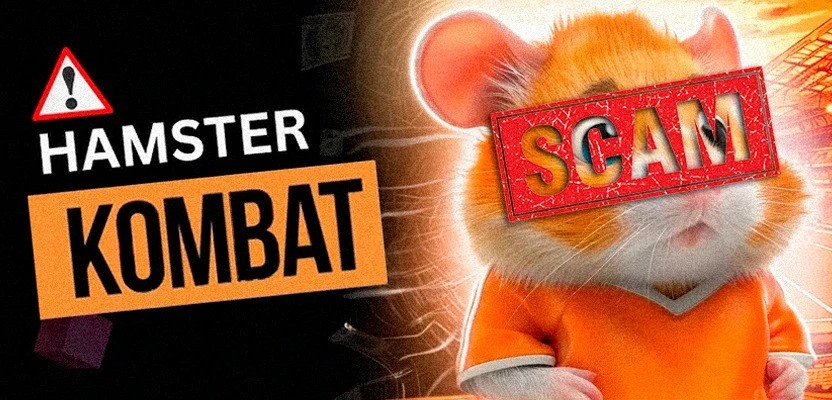
Hamster Kombat entered the gaming world with a promise of innovation and excitement, captivating the attention of both casual gamers and cryptocurrency enthusiasts alike. Marketed as an ambitious project combining entertainment with financial rewards, it seemed poised to become a significant player in the gaming industry. However, what initially appeared to be a groundbreaking platform soon revealed itself as a well-orchestrated scam, leaving thousands of users feeling betrayed and exploited. This article uncovers the truth behind the Hamster Kombat scam, exploring how the developers manipulated their audience, the role of influencers in perpetuating the fraud, and the financial repercussions for those who invested their time and money.
The Rise and Appeal of Hamster Kombat
When Hamster Kombat first launched, it quickly gained popularity due to its unique concept. The game promised players the opportunity to earn cryptocurrency by engaging in battles, solving puzzles, and completing various challenges. This play-to-earn model was particularly appealing in a market where digital assets were gaining mainstream acceptance. The developers successfully created a buzz around the game, positioning it as an opportunity to have fun while potentially making a profit.
The marketing campaign behind Hamster Kombat was both aggressive and effective. Early adopters were encouraged to join through a combination of flashy advertisements and influencer endorsements. The game’s sleek design and the promise of financial rewards drew in a diverse user base, from hardcore gamers to casual players looking to dip their toes into the world of crypto gaming. The initial reception was overwhelmingly positive, with players praising the game for its potential and the innovative approach it brought to the table.
The Turn of Events: From Promise to Scam
As Hamster Kombat grew in popularity, the developers began to introduce updates that drastically changed the game’s dynamics. Initially, these updates were met with enthusiasm, as players expected new features and improvements. However, it quickly became apparent that these updates were not intended to enhance the user experience but rather to exploit the growing player base.
One of the most significant changes was the introduction of low-quality mini-games within the Hamster Kombat app. These games, hastily assembled with minimal effort, required players to spend an excessive amount of time to earn even the smallest rewards. Many users noted that these games were filled with repetitive tasks, poor graphics, and uninspired gameplay. What’s worse, these mini-games were inundated with advertisements, often interrupting gameplay every few minutes, forcing players to watch countless ads to progress.
This shift in the game’s focus from quality content to ad-heavy mini-games was the first major red flag for the community. Players began to voice their concerns on social media, questioning the developers' intentions. The promise of earning cryptocurrency started to seem like a ploy to keep players engaged in an increasingly frustrating and unrewarding experience. As more users became aware of the changes, discussions began to surface about whether Hamster Kombat was, in fact, a scam.
Investigating the Deceptive Practices
A closer look at the updates revealed that the mini-games integrated into Hamster Kombat were not original creations but rather third-party apps that had been poorly adapted to fit the platform. These games were widely available on other platforms, often for free, leading to the conclusion that the developers had simply repurposed existing content to generate ad revenue. This revelation only deepened the community’s distrust, as it became clear that the developers were more interested in monetizing the game than providing a genuinely enjoyable experience.
Further complicating matters was the realization that the cryptocurrency rewards promised to players were far more difficult to obtain than initially advertised. Many players reported that after hours of gameplay, their earnings were negligible, often amounting to just a few cents’ worth of cryptocurrency. The high time investment required to earn these minimal rewards led many to believe that the developers were intentionally misleading players about the game’s earning potential.
Adding to the growing list of grievances was the lack of transparency from the developers. Despite the mounting criticism, the team behind Hamster Kombat remained largely silent, offering vague statements that did little to address the community’s concerns. This lack of communication further alienated the player base, many of whom began to feel that they had been intentionally deceived.
The Role of Influencers in the Scam
A key factor in Hamster Kombat’s rapid rise was the involvement of influencers, who were recruited early on to promote the game. These influencers, many of whom had large followings on platforms like YouTube and Twitter, played a crucial role in building the game’s credibility. They touted Hamster Kombat as a revolutionary project, often highlighting the potential financial rewards and the game’s unique concept.
However, as the truth about the game’s deceptive practices began to emerge, these same influencers found themselves in a precarious position. Many of their followers, who had joined the game based on their recommendations, felt betrayed. The backlash against these influencers was swift and severe, with many losing credibility and facing criticism for their role in promoting what was increasingly seen as a scam.
Some influencers attempted to distance themselves from the project, issuing apologies and claiming they had been unaware of the developers’ true intentions. However, for many in the community, this was too little, too late. The damage had been done, and the trust that had been placed in these influencers was irreparably harmed. This situation highlights the risks involved in influencer marketing, particularly in the rapidly evolving world of cryptocurrency and digital gaming, where the line between legitimate opportunities and scams can often be blurred.
Financial Fallout and Community Backlash
The financial implications of the Hamster Kombat scam are significant, particularly for those who invested time and money into the game. For many players, the realization that their efforts had been in vain was a hard pill to swallow. The cryptocurrency rewards that had been so heavily promoted turned out to be virtually worthless, with some players reporting earnings of just a few cents after weeks of gameplay. This, coupled with the time wasted on repetitive and unenjoyable tasks, left many feeling cheated.
The backlash from the community was swift and vocal. Social media platforms and online forums were flooded with negative reviews and complaints from disgruntled players. Many called for boycotts, urging others to stop playing the game and demanding refunds. Despite these demands, the developers remained largely unresponsive, further fueling the anger and frustration of the player base.
The impact of the Hamster Kombat scandal extends beyond just the players who were directly affected. The game’s downfall has also damaged the broader reputation of the play-to-earn model, leading many to question the legitimacy of similar projects. The trust that had been built up in the cryptocurrency gaming community has been significantly eroded, with many users now wary of investing in new platforms.
Conclusion: Lessons from the Hamster Kombat Scam
The Hamster Kombat saga serves as a stark reminder of the risks associated with the rapidly growing world of cryptocurrency gaming. What began as a promising project with the potential to revolutionize the gaming industry quickly devolved into a scam that exploited its user base for financial gain. The developers' focus on monetization over quality, coupled with manipulative marketing tactics and the involvement of influencers, ultimately led to the game's downfall.
For players, the Hamster Kombat scam underscores the importance of due diligence and skepticism when engaging with new gaming platforms. It is crucial to research and critically evaluate any project before investing time or money, particularly in the volatile world of cryptocurrency. The lessons learned from Hamster Kombat can help prevent similar scams from taking advantage of unsuspecting players in the future, fostering a more cautious and informed gaming community.




Comments 1
Mil pimientos picantes